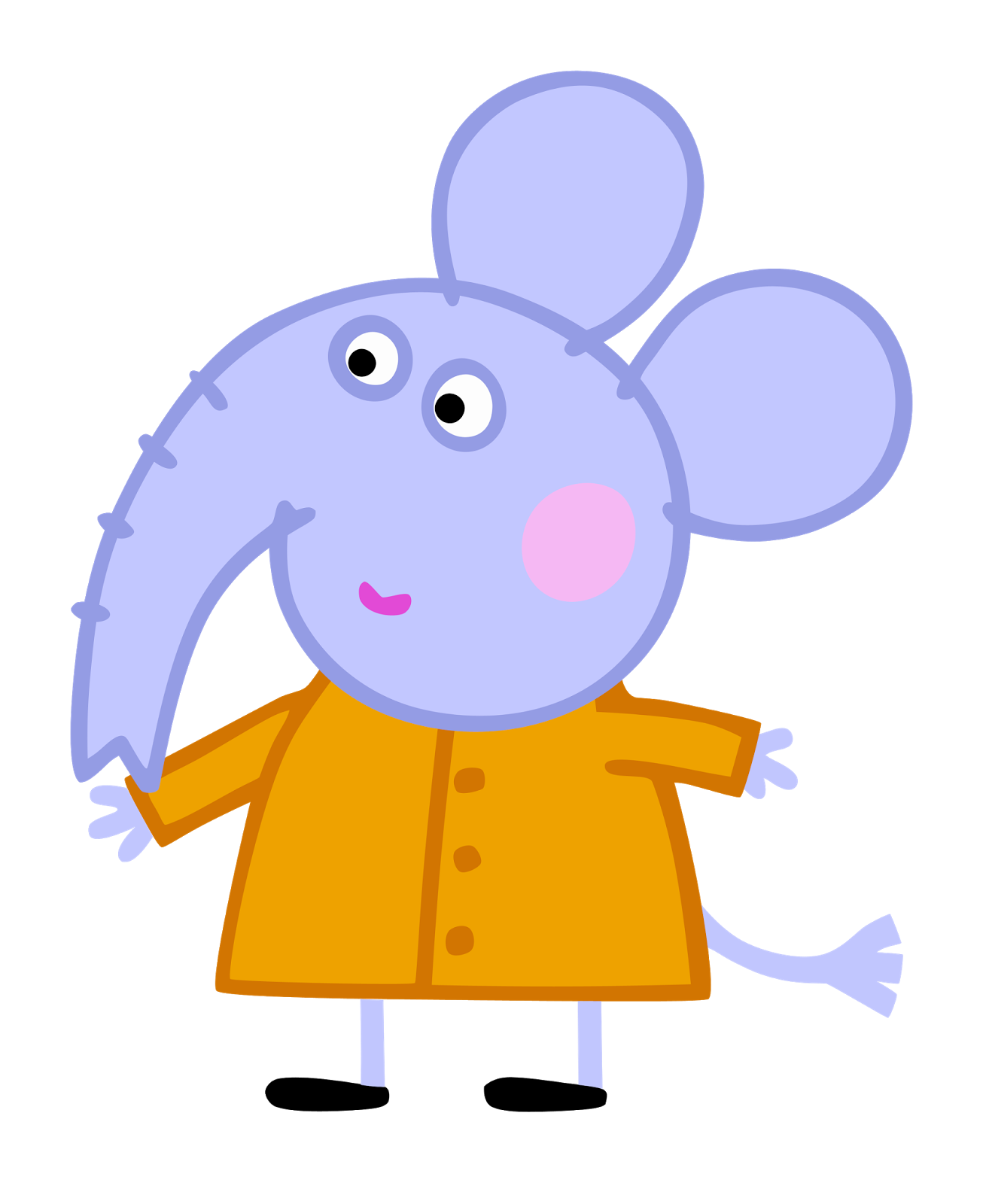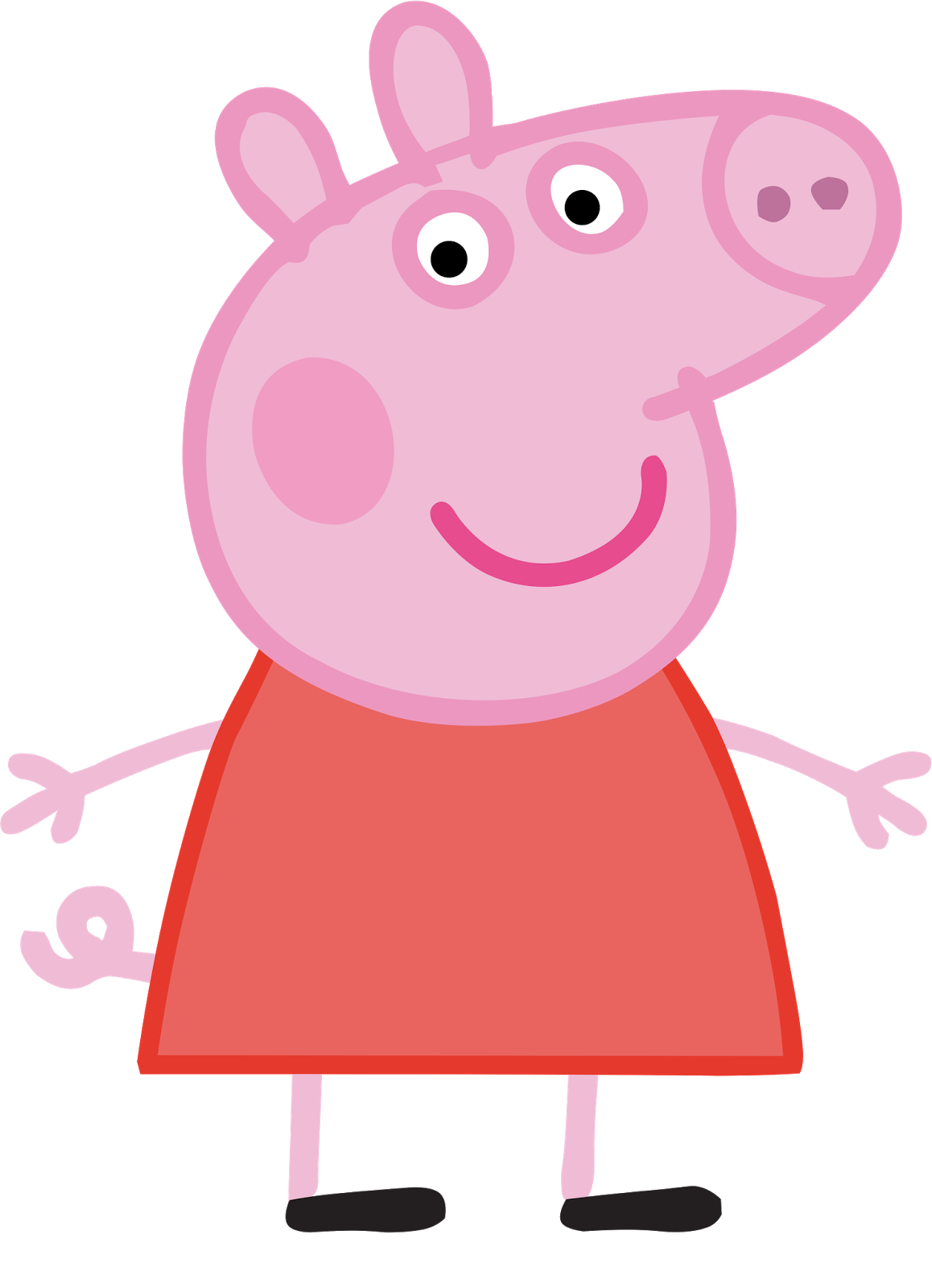Who are Peppa Pig characters?
Peppa Pig is a popular British preschool animated television series created by Neville Astley and Mark Baker. The show follows the adventures of Peppa, a young female pig, and her family and friends.
The main characters in Peppa Pig are:
- Peppa Pig: The protagonist of the series, Peppa is a playful and energetic 4-year-old pig who loves to play with her friends and go on adventures.
- George Pig: Peppa's younger brother, George is a curious and imaginative 2-year-old pig who loves dinosaurs and playing with his toys.
- Mummy Pig: Peppa and George's mother, Mummy Pig is a kind and caring pig who loves to cook and take care of her family.
- Daddy Pig: Peppa and George's father, Daddy Pig is a funny and loving pig who loves to play games and tell jokes.
- Grandpa Pig: Peppa and George's paternal grandfather, Grandpa Pig is a wise and gentle pig who loves to tell stories and spend time with his family.
- Granny Pig: Peppa and George's paternal grandmother, Granny Pig is a kind and loving pig who loves to bake and knit.
These are just a few of the many characters that appear in Peppa Pig. The show has been praised for its positive portrayal of family life and its ability to teach children about important values such as friendship, kindness, and respect.
Peppa Pig Characters
The characters in Peppa Pig are an important part of what makes the show so popular. They are all unique and relatable, and they each bring their own special something to the show. Here are eight key aspects of Peppa Pig characters:
- Family oriented
- Friendly
- Funny
- Imaginative
- Kind
- Playful
- Supportive
- Witty
One of the things that makes Peppa Pig characters so relatable is that they are all family oriented. They love and support each other, and they are always there for each other when they need them. For example, in the episode "Peppa's New Friend," Peppa is excited to make a new friend, but she is also worried that her new friend will replace her brother George. However, Peppa quickly learns that there is room in her heart for both her new friend and her brother. Peppa Pig characters are also very friendly. They are always willing to help others, and they are always looking for new friends. For example, in the episode "Peppa's Playgroup," Peppa invites all of her friends to her playgroup, even though she doesn't know them very well. Peppa's friends are all very different, but they quickly learn to get along and have fun together. Finally, Peppa Pig characters are very witty. They are always coming up with funny jokes and stories, and they love to make each other laugh. For example, in the episode "Peppa's Joke Book," Peppa tells her friends a joke book that she found. Peppa's friends all laugh at her jokes, and they all have a great time.
1. Family oriented
One of the things that makes Peppa Pig characters so relatable is that they are all family oriented. They love and support each other, and they are always there for each other when they need them.
This is an important aspect of Peppa Pig characters because it shows children the importance of family. It teaches them that family is always there for you, no matter what. It also teaches them the importance of being there for your family.
There are many examples of family oriented behavior in Peppa Pig. For example, in the episode "Peppa's New Friend," Peppa is excited to make a new friend, but she is also worried that her new friend will replace her brother George. However, Peppa quickly learns that there is room in her heart for both her new friend and her brother.
Another example of family oriented behavior in Peppa Pig is in the episode "Peppa's Playgroup." In this episode, Peppa invites all of her friends to her playgroup, even though she doesn't know them very well. Peppa's friends are all very different, but they quickly learn to get along and have fun together.
These are just a few examples of the many ways that Peppa Pig characters show family oriented behavior. This is an important aspect of the show because it teaches children the importance of family.
2. Friendly
Peppa Pig characters are known for their friendly nature. They are always willing to help others, and they are always looking for new friends. This is an important aspect of Peppa Pig characters because it teaches children the importance of being friendly and kind to others.
There are many examples of friendly behavior in Peppa Pig. For example, in the episode "Peppa's New Friend," Peppa is excited to make a new friend, but she is also worried that her new friend will replace her brother George. However, Peppa quickly learns that there is room in her heart for both her new friend and her brother.
Another example of friendly behavior in Peppa Pig is in the episode "Peppa's Playgroup." In this episode, Peppa invites all of her friends to her playgroup, even though she doesn't know them very well. Peppa's friends are all very different, but they quickly learn to get along and have fun together.
These are just a few examples of the many ways that Peppa Pig characters show friendly behavior. This is an important aspect of the show because it teaches children the importance of being friendly and kind to others.
3. Conclusion
Peppa Pig characters are friendly because they are always willing to help others and they are always looking for new friends. This is an important aspect of Peppa Pig characters because it teaches children the importance of being friendly and kind to others.
4. Funny
Peppa Pig characters are funny because they are always getting into comical situations. They make funny faces, say funny things, and do funny things. This makes the show entertaining for children and adults alike.
The humor in Peppa Pig is often slapstick, which means that it is based on physical comedy. For example, in one episode, Peppa and George are playing in the mud when they fall into a puddle. They get all muddy and dirty, and they have to go home and take a bath. This is a funny situation because it is unexpected and it is something that children can relate to.
The humor in Peppa Pig is also often verbal. For example, in one episode, Peppa is trying to tell a joke, but she gets the punchline wrong. This makes her friends laugh, and it shows that even Peppa can make mistakes. This is a funny situation because it is relatable and it shows that even adults can make mistakes.
The humor in Peppa Pig is important because it makes the show more enjoyable for children. It also helps to teach children about the importance of laughter and humor. Laughter is a great way to relieve stress and to make people feel better. It is also a great way to bond with others.
5. Imaginative
Imagination is a key component of Peppa Pig characters. It is what allows them to create their own worlds and to go on adventures. Peppa and her friends are always using their imaginations to come up with new games and stories.
For example, in one episode, Peppa and George are playing in the garden when they decide to pretend that they are on a safari. They use their imaginations to turn the garden into a jungle, and they pretend that the toys are wild animals. They have a lot of fun playing this game, and they use their imaginations to create a whole new world.
Imagination is important for children because it helps them to develop their creativity and problem-solving skills. It also helps them to learn about the world around them. When children use their imaginations, they are able to explore new possibilities and to see things from different perspectives. This can help them to become more creative and to develop new ideas.
Peppa Pig characters are a great example of how imagination can be used to create fun and educational experiences for children. The show encourages children to use their imaginations and to explore new possibilities. This can help them to develop their creativity, problem-solving skills, and learning skills.
6. Kind
Peppa Pig characters are known for their kindness. They are always willing to help others, and they are always looking for ways to make people feel better. This is an important aspect of Peppa Pig characters because it teaches children the importance of being kind to others.
There are many examples of kindness in Peppa Pig. For example, in the episode "Peppa's New Friend," Peppa is excited to make a new friend, but she is also worried that her new friend will replace her brother George. However, Peppa quickly learns that there is room in her heart for both her new friend and her brother.
Another example of kindness in Peppa Pig is in the episode "Peppa's Playgroup." In this episode, Peppa invites all of her friends to her playgroup, even though she doesn't know them very well. Peppa's friends are all very different, but they quickly learn to get along and have fun together.
These are just a few examples of the many ways that Peppa Pig characters show kindness. This is an important aspect of the show because it teaches children the importance of being kind to others. Kindness is a virtue that can make the world a better place.
When children see Peppa Pig characters being kind to others, they learn that it is important to be kind to others. They also learn that kindness can make people feel happy and loved. This is an important lesson for children to learn, and it is one that they can carry with them throughout their lives.
7. Playful
Peppa Pig characters are known for their playful nature. They love to play games, tell jokes, and have fun. This is an important aspect of Peppa Pig characters because it teaches children the importance of play.
- Imaginative Play
Peppa Pig characters often engage in imaginative play, pretending to be different characters and creating their own worlds. This type of play is important for children because it helps them to develop their creativity and problem-solving skills.
- Physical Play
Peppa Pig characters also enjoy physical play, such as running, jumping, and playing sports. This type of play is important for children because it helps them to develop their gross motor skills and coordination.
- Social Play
Peppa Pig characters often play with each other, sharing toys and taking turns. This type of play is important for children because it helps them to develop their social skills and learn how to cooperate with others.
- Educational Play
Peppa Pig characters also engage in educational play, such as learning about different animals and objects. This type of play is important for children because it helps them to learn new things and develop their cognitive skills.
Play is an important part of childhood. It helps children to develop their physical, cognitive, and social skills. Peppa Pig characters are a great example of how play can be fun and educational.
8. Supportive
In the beloved children's animated television series, "Peppa Pig," the characters embody the virtue of supportiveness, creating a wholesome and nurturing environment that fosters growth and well-being. This unwavering support manifests in various facets, each contributing to the show's positive and educational message.
- Emotional Support
The characters in "Peppa Pig" provide a strong emotional foundation for one another. They empathize with each other's feelings, offering words of encouragement and comfort during challenging times. For instance, when Peppa feels sad about losing her favorite toy, her family and friends rally around her, reminding her that they love her and that everything will be okay.
- Practical Support
Beyond emotional support, the characters in "Peppa Pig" also lend a helping hand in practical ways. They assist each other with everyday tasks, such as getting dressed or tidying up toys. By working together, they learn the importance of cooperation and teamwork.
- Intellectual Support
The characters in "Peppa Pig" encourage each other's intellectual growth. They share knowledge and experiences, fostering a love of learning and curiosity. For example, when Peppa and her friends visit the library, they are eager to explore the different books and engage in imaginative play.
- Social Support
The characters in "Peppa Pig" create a strong sense of community and belonging. They celebrate each other's successes and offer encouragement during setbacks. This social support system helps the characters develop a positive self-image and a sense of self-worth.
In conclusion, the "Supportive" aspect of "Peppa Pig" characters is a cornerstone of the show's educational and heartwarming message. Through their unwavering support for one another, the characters demonstrate the power of empathy, cooperation, and resilience.
9. Witty
In the beloved children's animated television series, "Peppa Pig," the characters exhibit a remarkable wit that adds charm and educational value to the show. Their clever remarks and quick-witted humor engage young viewers while promoting language development and cognitive skills.
- Verbal Play and Puns
The characters in "Peppa Pig" frequently use wordplay and puns to create humorous situations and introduce new vocabulary. For example, when Peppa's little brother, George, gets his hands dirty while playing, she exclaims, "Oh, George, your hands are as muddy as a muddy puddle!" Such playful language exposes children to different words and their meanings, fostering their language development.
- Observational Humor
The characters in "Peppa Pig" possess a keen eye for everyday occurrences and human behavior, which they translate into humorous observations. For instance, when Peppa and her friends go on a nature walk, they encounter a worm and Peppa remarks, "Look, it's a wiggly-wobbly worm!" These observations encourage children to pay attention to their surroundings and develop their own sense of humor.
- Situational Irony
The characters in "Peppa Pig" often find themselves in comical situations that create ironic moments. For example, when Peppa wants to jump in muddy puddles, her father warns her she'll get dirty, but she jumps in anyway, only to realize that her father was right. These ironic situations teach children about cause and effect, logical reasoning, and the importance of listening to advice.
- Character Quirks
Each character in "Peppa Pig" has unique quirks and personality traits that contribute to the show's wit. For instance, Peppa's enthusiastic nature often leads her into funny predicaments, while George's love for dinosaurs adds an element of charming absurdity. These character quirks provide children with relatable and memorable examples of different personalities and behaviors.
The witty nature of "Peppa Pig" characters not only entertains young viewers but also enhances their cognitive development, language skills, and understanding of the world around them. Through their humorous interactions and clever observations, these characters make learning fun and engaging for children.
FAQs on Peppa Pig Characters
Here are a few frequently asked questions about Peppa Pig characters:
Question 1: Who are the main characters in Peppa Pig?
The main characters in Peppa Pig are Peppa, George, Mummy Pig, Daddy Pig, Grandpa Pig, and Granny Pig.
Question 2: What are the ages of the main characters?
Peppa is 4 years old, George is 2 years old, Mummy Pig and Daddy Pig are both 34 years old, Grandpa Pig is 60 years old, and Granny Pig is 59 years old.
Question 3: What are the personalities of the main characters?
Peppa is a playful and energetic pig who loves to play with her friends and go on adventures. George is a curious and imaginative pig who loves dinosaurs and playing with his toys. Mummy Pig is a kind and caring pig who loves to cook and take care of her family. Daddy Pig is a funny and loving pig who loves to play games and tell jokes. Grandpa Pig is a wise and gentle pig who loves to tell stories and spend time with his family. Granny Pig is a kind and loving pig who loves to bake and knit.
Question 4: What are the relationships between the main characters?
Peppa and George are siblings. Mummy Pig and Daddy Pig are Peppa and George's parents. Grandpa Pig and Granny Pig are Peppa and George's paternal grandparents.
Question 5: What are the lessons that children can learn from Peppa Pig characters?
Children can learn many valuable lessons from Peppa Pig characters, such as the importance of family, friendship, kindness, and respect.
We hope this FAQ section has been helpful. If you have any other questions about Peppa Pig characters, please feel free to contact us.
Conclusion
The characters in Peppa Pig are a diverse and engaging group that teaches children about important values such as family, friendship, kindness, and respect. Through their adventures and interactions, Peppa and her friends demonstrate the importance of empathy, cooperation, and perseverance. The show's positive and educational messages have made it a favorite among children and parents alike.
As children watch Peppa Pig, they can learn valuable lessons about the world around them. They can learn about the importance of family and friends, how to be kind and respectful to others, and how to solve problems. Peppa Pig is a show that can help children grow and learn, while also providing them with plenty of laughs along the way.
You Might Also Like
Meet The Talented Actor Of Sheldon Cooper - Uncovering The Genius Behind The GeekWhat Happened To American Picker Mike Wolfe Lately?
The Ultimate Guide To Emily VanCamp's Captivating TV Series
Catch The Magical Trailer Of "Luca"!
The Perfect Shows To Binge After Modern Family: Your Ultimate Guide
Article Recommendations
- Experience The Magic Of Waterfest Oshkosh A Mustsee Summer Celebration
- The Rise And Allure Of The Laissez Boys A Comprehensive Insight
- Explore The Best Of Bluegrass Outlets Your Ultimate Shopping Destination


